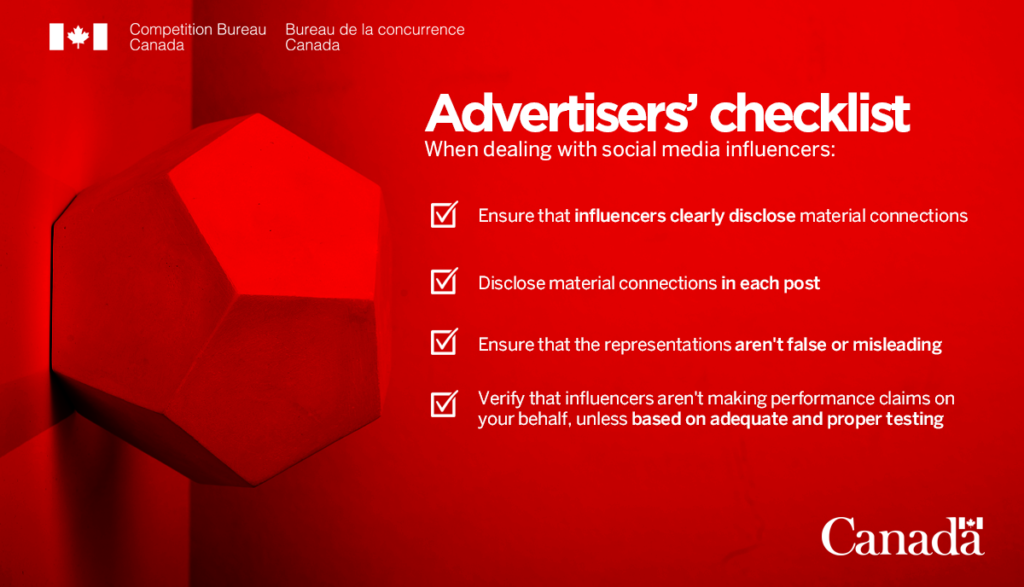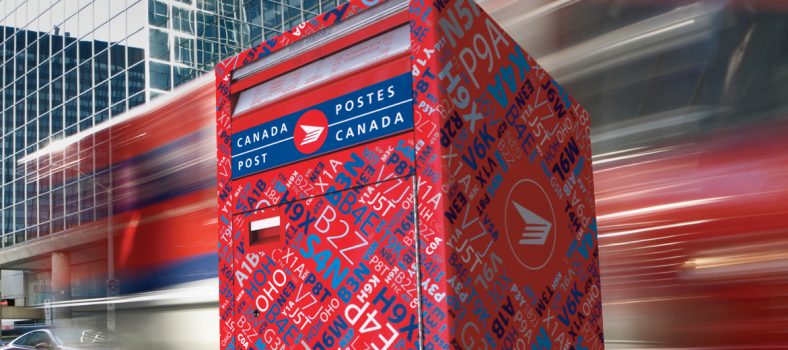Consumers must be able to easily recognize when social media content is actually an advertisement
GATINEAU, QC–The Competition Bureau sent letters to close to one hundred brands and marketing agencies involved in influencer marketing in Canada, advising that they review their marketing practices to ensure they comply with the law.
Influencers should clearly disclose the relationships they have with the business, product or service they promote. There is a relationship if the influencer receives money or commissions, free products or services, discounts, free trips or tickets to events, or has a business or family connection with the brand, among other things. Influencers should also be honest, and base any reviews and testimonials on actual experience.
 Businesses share a responsibility with influencers when they post advertisements on social media, as they may be liable for false or misleading content.
Businesses share a responsibility with influencers when they post advertisements on social media, as they may be liable for false or misleading content.
The Bureau reached out to brands and marketing agencies following a thorough review of influencer marketing practices across various industries, including health and beauty, fashion, technology and travel.
Quick facts:
Advertisers may pay or compensate influencers to create and share content that feature their products or brands.
The Competition Act applies to influencer marketing just as it would to traditional forms of advertising.
The deceptive marketing practices provisions of the Competition Act apply to anyone who is promoting a product, service, or any business interest, and those who do not comply may face significant penalties.
“When navigating the digital marketplace, consumers often rely on the opinions shared by influencers. To make informed purchasing decisions, consumers must know if these opinions are independent or an advertisement. Ensuring truth in advertising in Canada’s digital economy is a priority for the Competition Bureau, ” said Matthew Boswell, Commissioner of Competition.
Associated links
Influencer marketing and the Competition Act
Deceptive Marketing Practices Digest – Volume 4
False or Misleading Representations and Deceptive Marketing Practices: What are the Possible Penalties?
The Competition Bureau, as an independent law enforcement agency, ensures that Canadian businesses and consumers prosper in a competitive and innovative marketplace.




